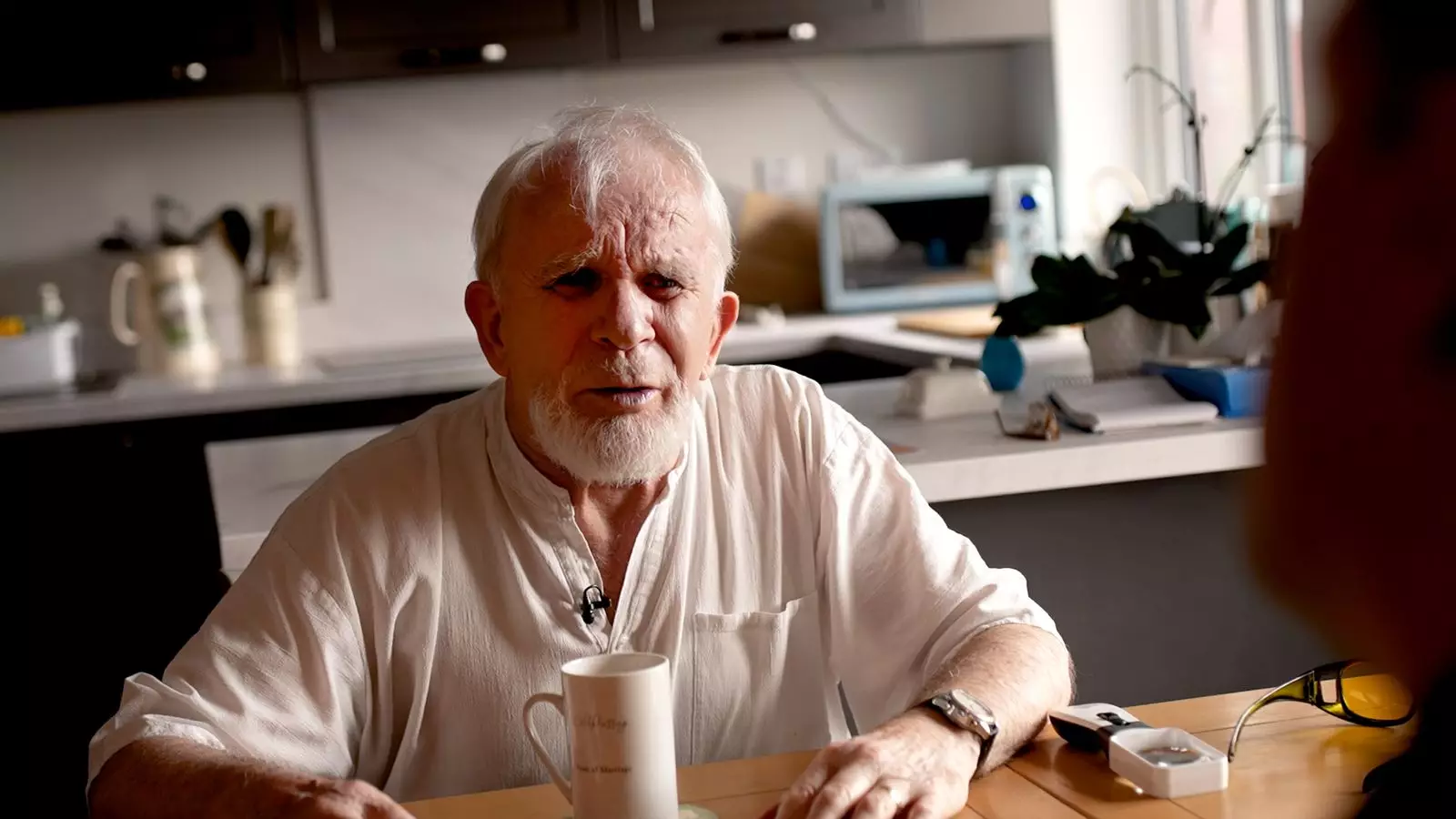As the chill of winter approaches, many vulnerable members of society are bracing themselves for a season fraught with financial uncertainty. Recent government policies have ignited heated debate, particularly in light of new regulations affecting pensioners’ winter fuel allowances. Kevin McGrath, an 81-year-old former Catholic monk turned social worker, epitomizes the fears held by countless retired individuals across the UK. Living on a meager state pension without any private retirement savings, Kevin’s concerns illuminate a larger societal issue that suggests the government is disproportionately targeting the least financially secure.
The recent announcement from Chancellor Rachel Reeves has changed the landscape for over ten million pensioners in England and Wales. The government declared that those not receiving Pension Credit or specified means-tested benefits will lose their eligibility for the winter fuel payment. With this policy expected to save an estimated £22 billion in public finances, it raises the question — do these savings come at an unacceptable human cost? As exemplified by Kevin’s circumstances, the decision to restrict this crucial financial lifeline to only a select group of elderly individuals raises significant ethical concerns.
Pensioners like Kevin, who rely solely on the state pension, are left feeling disenfranchised by a system that they feel no longer accommodates their needs. The implication is clear: the elderly and those without additional resources are being asked to bear the brunt of government austerity measures. As Kevin poignantly states, “Why are they starting at the bottom? Why don’t they start at the top?” This sentiment resonates with countless individuals facing similar predicaments, reflecting a sense of abandonment among society’s most vulnerable demographics.
The reaction to this policy shift within the elderly community is evident. Data from Independent Age, a charity advocating for older individuals, reveals an alarming uptick in inquiries regarding Pension Credit, with calls soaring by three-and-a-half times the usual volume. This spike not only highlights the immediate concerns surrounding financial eligibility but also the profound psychological toll these policies are inflicting on pensioners. Many express feelings of shame and embarrassment when navigating the process of proving their financial vulnerability.
Joanna Elson CBE, chief executive of Independent Age, notes that many older individuals are “frightened” about their ability to make ends meet during the winter months. The emotional weight of financial insecurity, particularly in a traditionally festive season, can compound feelings of isolation and despair among the elderly. For those already struggling, the prospect of further cutbacks can feel like an insurmountable burden. A plea has been made to the government to reconsider the timing of these policy measures, advocating for a delay until more citizens can successfully apply for Pension Credit.
The government has claimed that while they are cutting certain benefits, families will still see a significant increase in their state pensions due to the triple lock system, which ties annual increases to inflation, earnings, or a flat rate of 2.5%. However, while some pensioners may see an increase in their overall income, the forthcoming changes to the winter fuel allowance could erode any potential benefits. Moreover, the implications of economic inequality are glaringly present, raising questions about the government’s commitment to a social safety net for those who have already contributed a lifetime of labor.
For many pensioners like Kevin McGrath, the future remains uncertain. He finds himself unconvinced that age and economic inactivity warrant the lack of support, stating, “There’s something grotesque about it all.” Such sentiments sharply illustrate the gulf between government policy and the lived realities of senior citizens. While the government emphasizes the importance of fiscal responsibility, Kevin and his peers emphasize the need for compassion and acknowledgment of their struggles.
In a society that prides itself on compassion, targeting the most financially vulnerable citizens raises profound ethical questions. As winter approaches, it is crucial that the voices of elderly citizens are not merely heard but are acted upon. The government must rethink its strategy regarding financial support for seniors; the well-being of its citizens should never be an expendable commodity in a quest for austerity or budgeting. In light of the impending policy changes, the urgent call is for a reassessment of priorities that ensures the dignity and security of all, especially those who have devoted their lives to contributing to society.
As the cold sets in, may the warmth of solidarity prevail for those elderly citizens like Kevin, who face a daunting winter ahead.

Leave a Reply